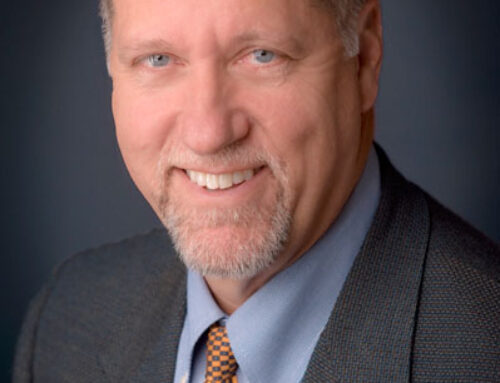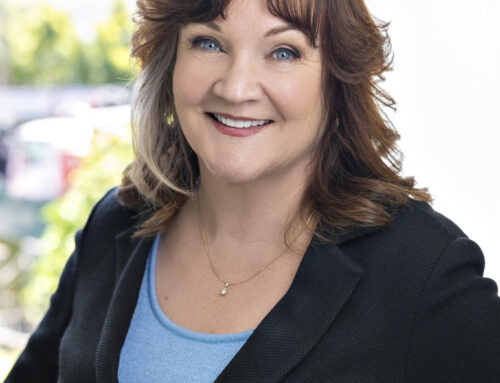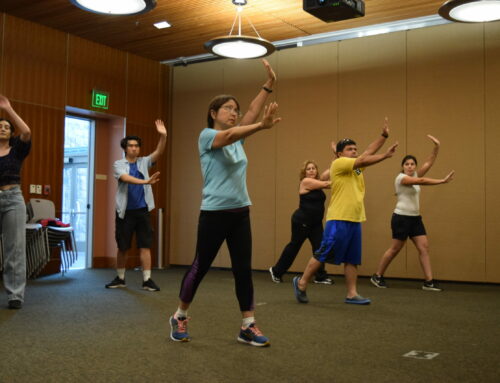Emotional, financial stress comes with dealing with loved one facing dementia
Published in the March 15 – 28, 2017 issue of Morgan Hill Life
By Marty Cheek

Gary Steinke
The challenges of dementia and Alzheimer’s disease can severely damage the quality of life for South Valley families. Spouses and children often find their own lives disrupted when they must care for loved ones suffering from symptoms such as memory loss, personality changes and challenges in decision making.
That’s why the Law Offices of James A. Ward is hosting a free public forum 1 p.m. Friday March 24 at the Morgan Hill Community Center to educate local residents about the early detection, prevention, care, treatment and progression of dementia and Alzheimer’s.
The presenters will be Tiffany Mikles, founder of Dementia Care Coaching in San Jose, and Dr. Gary Steinke, the founder of the Alzheimer’s Activity Center in San Jose. They both will also answer questions from the audience about how to best deal with the disease and the legal issues that come with caring for someone with dementia.
Steinke is the retired chief of geriatrics at the Santa Clara Valley Health & Hospital System as well as a former clinical professor of medicine at Stanford University. He now serves as a medical-legal consultant to attorneys and the courts regarding issues of mental capacity and dementia.
“There’s a whole variety of concerns that people have as to how they want to live, how they want to be treated,” he said. “And if you can come to grips with those topics by talking to the attorney or physician and get them written down, you have the opportunity to live as respectful and as dignified a life as you can imagine if someone can carry that out.”
It’s important to have your medical and financial legal affairs in order with documents such as a durable power of health care, a durable attorney power for finances, and an advanced health care directive.

Tiffany Mikles
The durable power of health care document gives everyone 18 years and older the right to name a surrogate decision maker for them if they become incapacitated and can’t make decisions for themselves. A durable power of attorney for finances, or a financial power of attorney, arranges for someone to manage your finances if you are unable to make decisions for yourself. An advance health care directive, also known as living will, is a legal document in which a person specifies what actions should be taken for their health if they are no longer able to make decisions for themselves because of illness or incapacity.
Getting help from a professional in updating the medical/financial legal documents when needed because of life changes can also help minimize problems later, Steinke said.
“We think that once we do a will and a trust, once it’s done, it’s done, we’re all set,” he said. “Well, the thing that happens is families change, families acquire new members, some kids become more important, some kids become less important, some kids become estranged, sometimes other people come into one’s life.”
The second presenter at the forum will be Mikles who has more than 20 years of experience working with seniors in long-term care and assisted-living communities. She is an Alzheimer’s Foundation of America Qualified Dementia Care Provider member and her experience with dementia care has led to training more than 600 professional caregivers. She leads the monthly dementia support group at the Morgan Hill Centennial Senior Center to help caregivers deal with their emotional issues and other challenges related to the disease.
Mikles explained that people sometimes mistake the term “dementia” with the brain disease Alzheimer’s. Dementia is a description of various symptoms such as forgetfulness, agitation, hallucinations, and memory loss. After a physician identifies that someone has dementia, they need to see a neurologist and find out the reason. There are more than 100 reasons why a person might have dementia, Mikles said. For example, reversible dementia is often stress induced, and the symptoms usually disappear once the stress is eliminated. Strokes, head injuries and alcoholism can also cause dementia. Diseases such as Parkinson’s and Alzheimer’s also cause dementia symptoms.
About five million people in the United States have Alzheimer’s and this number is expected to rise as members of the Baby Boomer generation get older. There is no known way to cure the disease, Mikles said.
“It’s very expensive to deal with someone with Alzheimer’s, so we’re worried about the growing number and how we’re going to pay for them,” she said.
Caregivers such as a child or spouse often are forced to leave the work world because the loved one with dementia can’t be left alone, she said. That causes financial stress for a couple or family. Other income issues include setting the house up for safety or the expense of a day-care program. Secured memory care communities can cost $6,000 to $9,000 a month.
There’s also the emotional toll of the constant stress the caregiver has in worrying about the loved one’s safety. About seven out of 10 people with Alzheimer’s wander away from the home due to the disease, Mikles said.
“They just take off and walk very quickly and go very far and not make any sense,” she said. “They’ll just walk out into a street without looking and keep on going — they can get pretty far. Usually if we don’t find them in that first 24 hours, they don’t survive.”
Spouses and families dealing with someone who has the early signs of Alzheimer’s should have a talk with the person and work with a professional attorney to prepare legally-binding papers to ensure their medical care and financial stability, Mikles said.
“The biggest thing to do is get your legal documents in order, because that person is not going to be able to sign later on,” she said. “Something really simple that people overlook is that durable power of health care where you choose someone to make health care decisions for you in the event that you cannot.”
Mikles encourages people facing the possibility of caring for loved ones to attend the March 24 forum and learn how to best deal with the struggles and legal challenges. She discourages bringing family members who have the dementia symptoms to the forum because they might be alarmed at what they will face as their Alzheimer’s progresses.
“The target audience for that talk is anyone who wants to learn anything about dementia,” she said. “It’s not just for caregivers, but if you’re curious and want to know about it, it is for you.”






